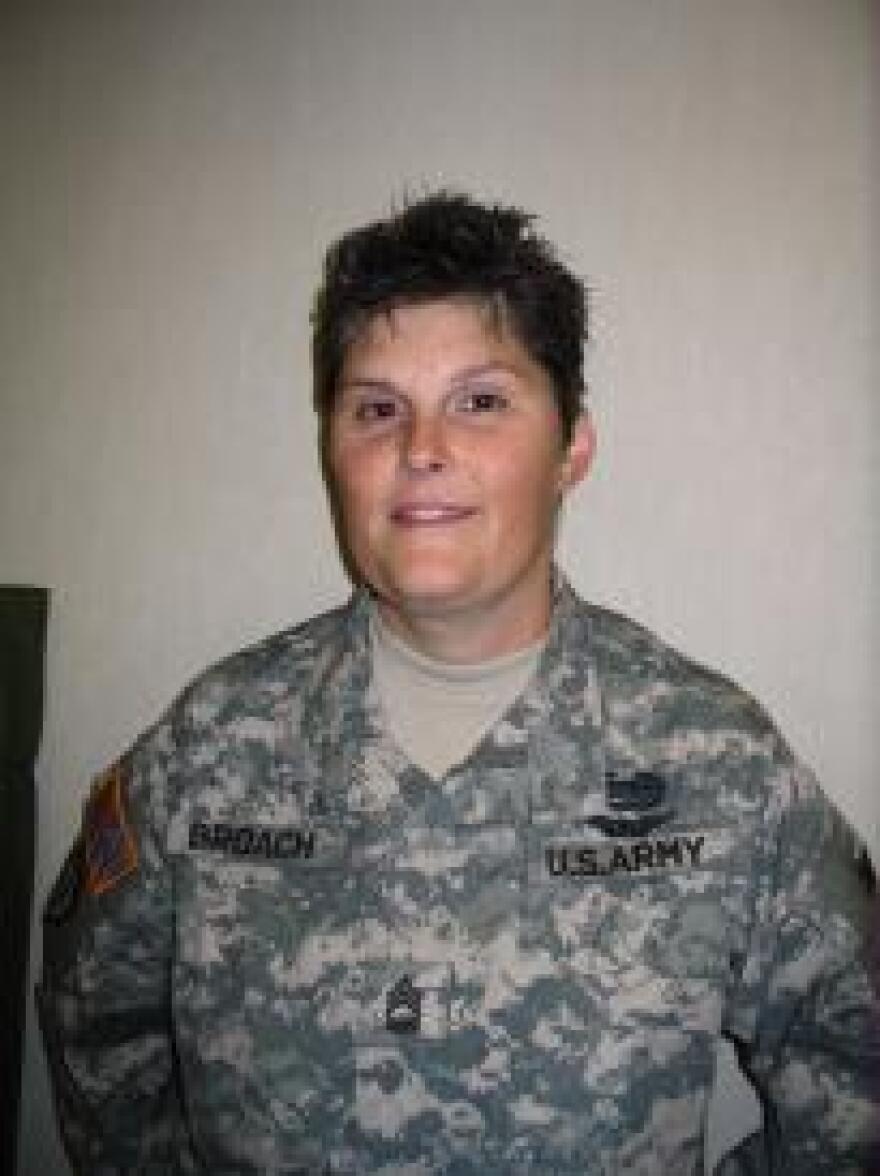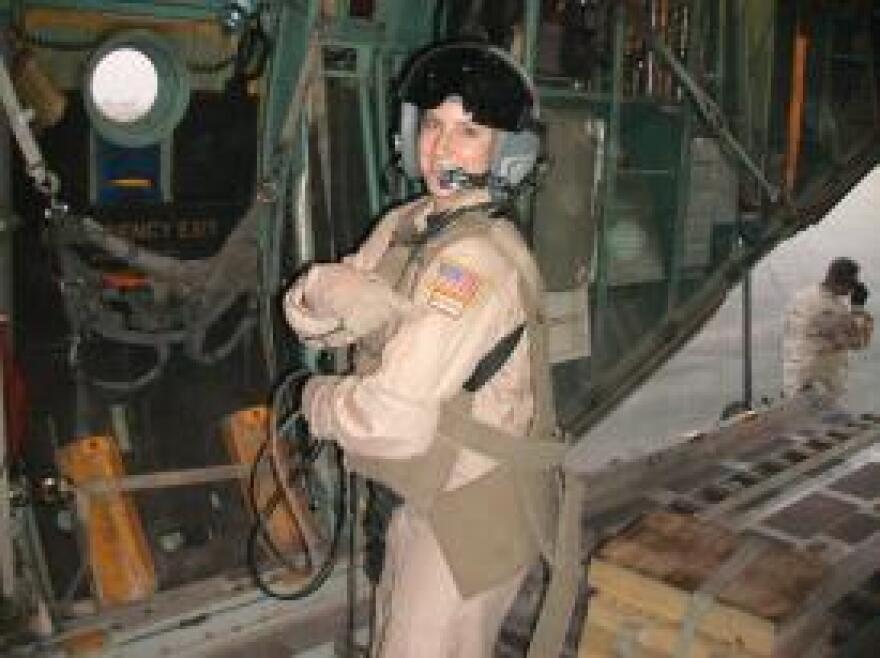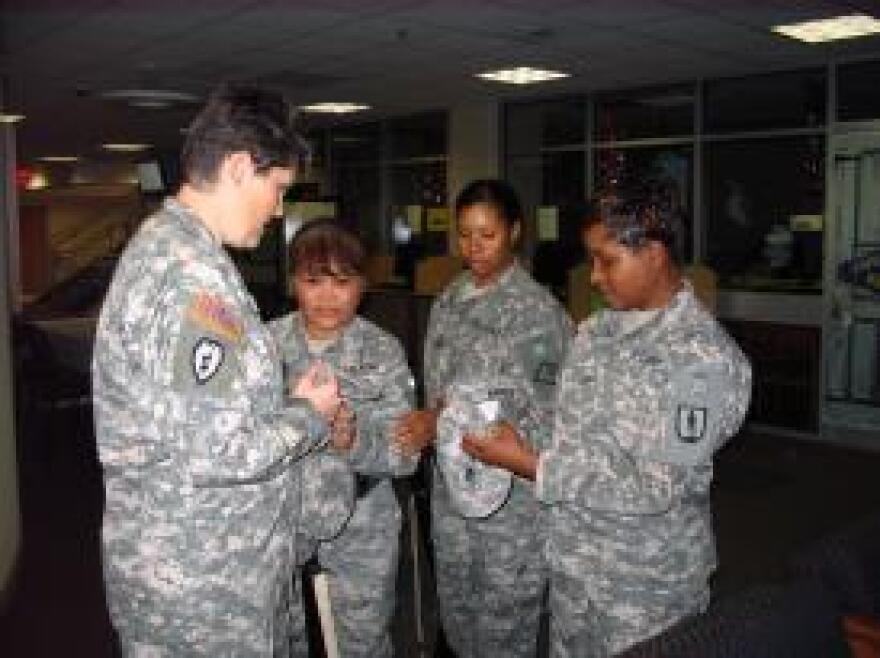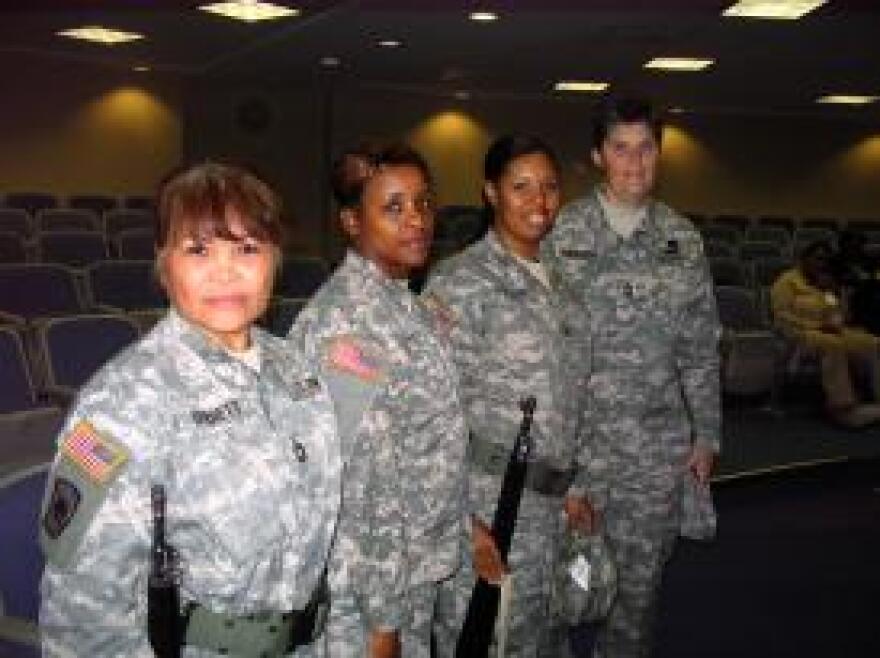For many years, conventional wisdom and Pentagon policy barred female soldiers from direct ground combat, but the nature of modern warfare often puts them in the heat of battle.
At an event in North Little Rock, Sergeant First Class Jennifer Broach fixes her fatigues, clutches her rifle and helps her fellow soldiers prepare for the Presentation of Colors, displaying the flag for the Pledge of Allegiance. Broach completed two combat missions in Iraq with the Arkansas Army National Guard.

“In 2004, I was deployed to Baghdad, Iraq and I worked in the Joint Operations Center in the Rescue Coordination Cell. I was with the Aviation Unit. Pretty much, whenever there was a down helicopter I would coordinate support to go and retrieve that helicopter,” said Broach, as she unfurls the American flag. “In 2006, I was a First Sergeant for an Air Traffic Control platoon and we went to Mosul, Iraq where we served roughly 18 months on that deployment.”
Broach says having women in combat is a good thing, because women have just as much fight in them as the men. She says the hard part is getting used to family life after being in a war zone.
“When you’re deployed, they pretty much do your laundry, cook for you, and clean for you. You don’t do anything, but keep you living quarters clean so it’s like a vacation for most women,” Broach said, as we walked down a hallway. “When you return home, you have to leave that military role behind and you can’t treat your husband like he’s one of your soldiers … so you have to change the way you do things.”
Like Sergeant Broach, most servicewoman strike a delicate balance between duties at home and work. While deployed, they have to face head-on the male-dominated military culture. Retired Air Force Staff Sergeant Jamie Mucciarelli did four tours of duty in Iraq and hauled cargo and passengers, as a C-130 load master.

“Stats show that it’s predominately an all male service, but we’re growing,” said Mucciarelli. “I know that I’ve worked with men who were like my dad, some were like my big brother, some were like a teacher, and some were like that moron fraternity guy. You have all walks of life and it just keeps it interesting.”
Mucciarelli now helps local vets work through mental health issues. She says, after a deployment, many soldiers find it hard to cope with the fact that life on the home front went on without them.
“You come back and everybody is still the same, but you’re not,” said Mucciarelli. “You do your best … and everybody from work has just been through the same thing you have so you feel more comfortable at work and then it slowly turns into nobody wants to go home.”
More than 100,000 thousand women have served in the current wars in Iraq and Afghanistan. From family life to the frontlines of war, health experts say service women are already experiencing the dangers of combat and need help adjusting after deployments. Dr. Betty Moseley Brown is a retired Marine and helps oversee operations at the VA’s Center for Women Veterans in Washington, D.C.

“It’s only a 24-hour period when their back home being called to be wife, mother, sister, and daughter. Their families expect them to take on the immediate role that they did six months, or a year ago,” said Brown. “Our women veterans need a little transition time to really focus and just be a better woman when they go back and take on those additional roles.”
Brown says the changing roles of women in uniform prompted the VA to overhaul various benefits programs so women veterans can get the mental, physical, and emotional services they need in a timely manner.
Sergeant First Class Jennifer Broach says combat, or not, it’s her duty to serve the country.
“When I’m in the grocery store, people will come up to me all the time and thank me for my service and tell them it’s what I do,” said Broach. “You know, a lot of people thought that having women in combat was a hindrance, but from my experience being deployed twice I think it’s a positive.”

A high-level military commission is set to recommend that women finally be allowed in combat saying the current ban limits promotion opportunities and doesn’t reflect realities on the ground in Iraq and Afghanistan. Supporters of the ban say a policy change would negatively impact recruitment and unit cohesion among infantrymen or ground troops. The commission’s report will be presented to Congress in March.



